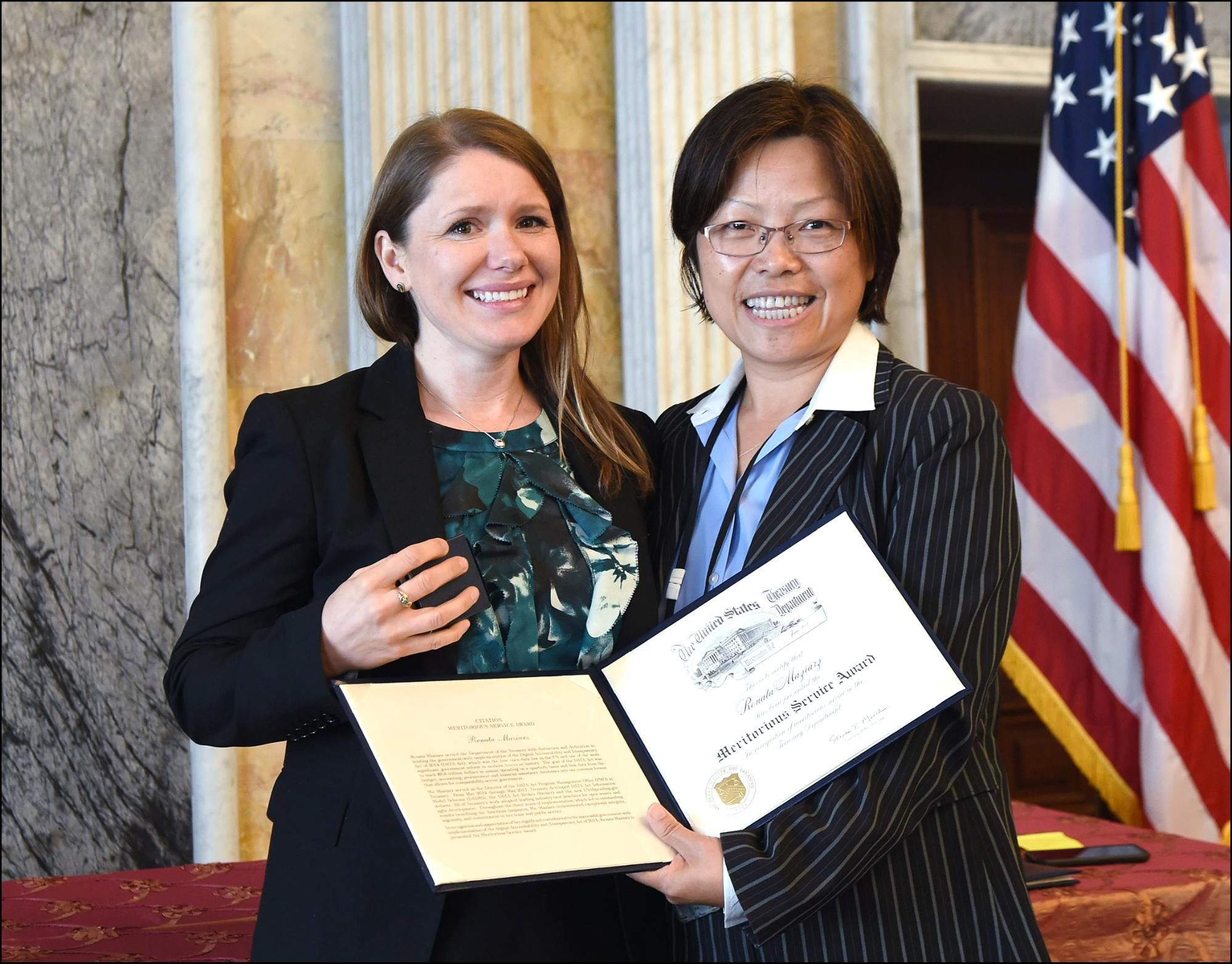
In the course of our engagements, we’ve had many amazing partners who have been practicing similar innovative techniques long before 18F existed, but usually in isolation. Today, we’re highlighting one of those amazing partners: Renata Maziarz, at the Bureau of Fiscal Service in the Department of the Treasury.
Renata has been heading up the DATA Act Program Management Office (PMO) at Treasury since the law was passed. (Read more about the DATA Act and 18F’s work with Treasury.) She was responsible for getting agreement from federal agencies on a data standard, building a product for data submission from agencies, and building a public-facing API and website. Renata engaged 18F very early on for some assistance with community outreach and plain language writing, and later for a software prototype and help with the product management and technical architecture. It’s thanks to Renata and her leadership that the DATA Act was implemented successfully, under budget, and before the statutory deadline.
Although Renata’s background is in budgeting and not software product management, she was able to re-orient the DATA Act PMO team to be focused on a product and the happiness of its users (both inside and outside the government) as opposed to paperwork and processes. When the PMO and the software teams were having trouble aligning their delivery and messaging, she transformed the PMO team into an agile team using the Kanban method. This helped align the PMO team, which was focused on agency outreach and other program management tasks, with the software team, so that they could work together with the same cadence and responsiveness. This helped improve communication and delivery to users across multiple products.
She also came to embody the spirit of continuous iteration and improvement. After one of the major milestones for the DATA Act, she scheduled a retrospective with all of the agency partners to talk honestly about what had gone well, what needed improvement, and what had not gone so well. A retrospective like this at the end of every sprint is common practice for agile teams, but Renata translated these practices to the program management and outreach aspects of the project. She made our agency partners feel engaged and included in the team’s continuous improvement.
Renata is leading a team mixed of federal employees and contractors and creating a space where everyone on the team can be honest and open about what is and is not working. By identifying problems as a team, everyone sees risks as soon as they arise, and the team is able to tackle the challenge together.
But don’t take my word for it! Here are some quotes from the rest of the team:
Renata won the hearts and minds of DATA Act skeptics because she embodies the true spirit of agile and user-centered design. She envisioned an outcome of publishing open, valid spending data but was willing to rethink how to implement that vision based on feedback from users and lessons learned by the product team. The ability of the PMO to truly embrace change is what made the country’s first open data law a success. — Becky Sweger, Former Engineer at 18F
Renata is a problem solver and innovator, yet she is relentlessly collaborative. Those qualities allow her to be very effective in driving changes in a large and complex organization like the federal government. She was not only interested in getting to the finish line herself, but also getting everyone else there. She was the key reason why all of the CFO agencies reported by the statutory deadline when no one would have expected it. As a private citizen now, I am grateful for such a selfless and competent civil servant. – Christina Ho, Former Deputy Assistant Secretary for Accounting Policy and Financial Transparency, Department of the Treasury
While managing a custom software project has its challenges, it’s possible to fundamentally change the outcomes of your project using some of the same methodologies that Renata used. They’re not the exclusive domain of those of us working at 18F, the U.S. Digital Service, or the other digital service teams around government. It all starts with one dedicated civil servant, deciding to do things differently.

